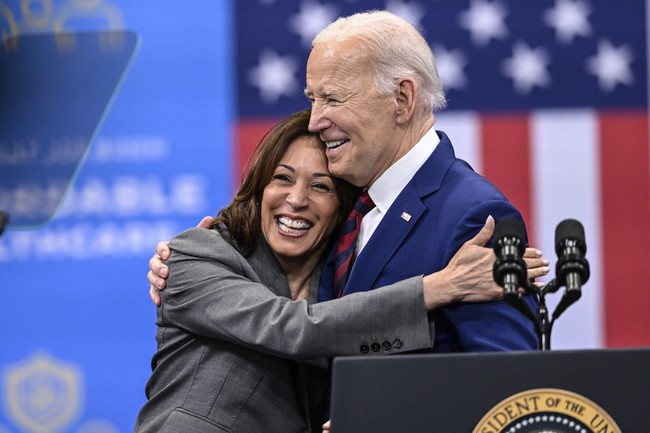We support our Publishers and Content Creators. You can view this story on their website by CLICKING HERE.

If you gave Kamala Harris a fire hydrant, a fire hose, one of those hydrant wrenches, and instructions to fill the little blue kiddie pool in your front yard, she couldn’t get enough water in that thing to make a tissue damp. At least that’s my takeaway after FCC Commissioner Brendan Carr’s scorching congressional review of Harris’s oversight of Joe Biden’s multibillion-dollar plan to wire rural homes with high-speed internet.
Advertisement
“In 2021, Vice President Harris agreed to lead a $42 billion effort to expand internet access to millions. It’s been 1,039 days, and no one has been connected—no homes, no businesses, not even a shovel in the ground.”
So a lot like her oversight of the border crisis then.
Carr’s congressional testimony continued: “It gets worse. No infrastructure will begin until next year at the earliest, and in many cases, not until 2026. This makes it the slowest federal broadband program in recent history.”
Reason’s Joe Lancaster reported in June that red tape — surprise! — plays a big part in why all those billions are just sitting there untapped:
Among several examples, the senators noted that NTIA’s BEAD proposal “requires subgrantees to prioritize certain segments of the workforce, such as ‘individuals with past criminal records’ and ‘justice-impacted […] participants.'” The infrastructure law that authorized the program merely required contractors to be “in compliance with Federal labor and employment laws.”
The previous year, in a letter to Commerce Secretary Gina Raimondo, Republican senators warned that the NTIA’s proposed BEAD rollout “creates a complex, nine-step, ‘iterative’ structure and review process that is likely to mire State broadband offices in excessive bureaucracy and delay connecting unserved and underserved Americans as quickly as possible.”
Advertisement
“The bottom line,” Carr told Congress, is that “without major reforms, Vice President Harris’s $42 billion program is wired to fail. It’s time to correct course. Get rid of all the extraneous political goals and focus on quickly connecting Americans.”
But then who would hire the correct proportion of ex-cons and ensure that each foot of cable laid is both diverse and inclusive?
Snark aside, these are the same self-inflicted problems plaguing the $50 billion Biden-Harris project to build 500,000 EV charging stations. For those keeping score at home, the administration lobbied Congress for nearly $100 billion on these two infrastructure boondoggles and, so far, we’ve gotten zero new high-speed internet connections and eight EV charging stations.
Without having to lay any cable at all or get caught up in any red tape, Washington could give rural households a $600 voucher good for a high-speed Starlink satellite transceiver and WiFi router. While we’re spending the big bucks, make the voucher an even $2,000 and include a year of service.
For that same $42 billion, you could quickly provide a year of high-speed internet to 21 million homes — more than four times the number Biden-Harris promised to help. But where are the opportunities for graft and DEI in that?
Advertisement
“If you put the federal government in charge of the Sahara Desert,” Milton Friedman quipped, “in 5 years there’d be a shortage of sand.” Put these two brain surgeons in charge of it, and they’d probably try to eat the sand.
Recommended: This Is What Trump’s Crypto Play Is Really About
P.S.: PJ Media was founded in the wake of Rathergate to protect free speech from government busybodies like Kamala Harris and from mainstream media gatekeepers, too. Help us keep up the fight during our 60% off FIGHT promotion. If you’re already a member, thank you so much for your support.

 Conservative
Conservative  Search
Search Trending
Trending Current News
Current News 







